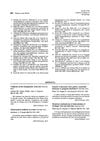 9 citations,
December 2020 in “Journal of The American Academy of Dermatology”
9 citations,
December 2020 in “Journal of The American Academy of Dermatology” Platelet-rich plasma may help restore immune balance in bald patches, but its effectiveness in treating hair loss is limited.
 9 citations,
February 2011 in “Revista Brasileira de Farmacognosia”
9 citations,
February 2011 in “Revista Brasileira de Farmacognosia” Tridax procumbens plant parts boost immune response in mice.
 8 citations,
December 2021 in “International Journal of Family Studies, Food Science and Nutrition Health”
8 citations,
December 2021 in “International Journal of Family Studies, Food Science and Nutrition Health” Extra virgin olive oil may boost the immune system and help fight infections like COVID-19.
 7 citations,
July 2019 in “The Journal of Dermatology”
7 citations,
July 2019 in “The Journal of Dermatology” Terbinafine effectively treated kerion celsi despite disrupted immune responses.
 3 citations,
December 2016 in “Springer eBooks”
3 citations,
December 2016 in “Springer eBooks” Activating TLR3 improves the healing and immune properties of periodontal ligament stem cells.
 3 citations,
January 2013
3 citations,
January 2013 Hypothyroidism in dogs is usually caused by immune system issues or gland atrophy, affects middle-aged purebreds most, and is treatable with medication.
2 citations,
September 2021 in “JAAD case reports” A man with a weakened immune system was diagnosed with a rare skin condition called trichodysplasia spinulosa using skin examination techniques.
 2 citations,
January 2014 in “Journal of clinical and investigative dermatology”
2 citations,
January 2014 in “Journal of clinical and investigative dermatology” Some drugs used to treat immune conditions may cause different types of hair loss.
 1 citations,
March 2023 in “International journal of rheumatic diseases”
1 citations,
March 2023 in “International journal of rheumatic diseases” Relatives of lupus patients show signs of immune system activity but not full-blown lupus.
 1 citations,
May 2022 in “Frontiers in Pharmacology”
1 citations,
May 2022 in “Frontiers in Pharmacology” Astilbin can potentially calm overactive immune responses, like in Type 1 Diabetes, by suppressing certain cell activities and reducing inflammation.
 May 2023 in “Elsevier eBooks”
May 2023 in “Elsevier eBooks” Systemic immunotherapies are used for immune-related hair loss but not usually for genetic hair loss, unless the patient has both conditions.
 May 2023 in “Elsevier eBooks”
May 2023 in “Elsevier eBooks” Some treatments that modify the immune system might help with certain types of hair loss but haven't been explored for common hair loss alone.
 April 2023 in “The journal of investigative dermatology/Journal of investigative dermatology”
April 2023 in “The journal of investigative dermatology/Journal of investigative dermatology” The study suggests that changes in immune system receptors and their interaction with a cell component may be important in the development of a type of hair loss condition.
 April 2023 in “Journal of Investigative Dermatology”
April 2023 in “Journal of Investigative Dermatology” COVID-toes show a unique immune response over time, different from vaccine-related chilblains.
 April 2023 in “The journal of investigative dermatology/Journal of investigative dermatology”
April 2023 in “The journal of investigative dermatology/Journal of investigative dermatology” Activating mitophagy may help manage a key immune response involved in the hair loss condition alopecia areata.
 January 2023 in “Karger Kompass. Dermatologie”
January 2023 in “Karger Kompass. Dermatologie” Scientists are still unsure what triggers the immune system to attack hair follicles in Alopecia areata.
 November 2022 in “Journal of Investigative Dermatology”
November 2022 in “Journal of Investigative Dermatology” The study found that skin inflammation and immune response pathways are activated in Solar Urticaria patients after UV exposure, unlike in healthy people.
 November 2020 in “International journal of contemporary pediatrics”
November 2020 in “International journal of contemporary pediatrics” Two siblings had a rare immune disorder caused by a FOXN1 gene mutation.
May 2018 in “The journal of immunology/The Journal of immunology” Mutations in the FOXN1 gene cause severe immune issues but don't affect hair and nails.
April 2018 in “Journal of Investigative Dermatology” Melanogenesis-related proteins may trigger immune responses in alopecia areata patients.
Male hormones can decrease the ability of immune cells to fight bacteria.

A new compound from Royoporus badius activates immune cells and induces inflammatory responses.
 September 2017 in “The journal of investigative dermatology/Journal of investigative dermatology”
September 2017 in “The journal of investigative dermatology/Journal of investigative dermatology” Scarred skin in lichen planopilaris loses immune cells due to a decrease in a specific protein in skin cells.
 April 2017 in “The journal of investigative dermatology/Journal of investigative dermatology”
April 2017 in “The journal of investigative dermatology/Journal of investigative dermatology” Stress in hair follicle cells increases certain immune-related proteins, which might contribute to hair loss conditions.
May 2014 in “The journal of immunology/The Journal of immunology” Early over-expression of FoxN1 harms immune and skin development.
January 2014 in “International Journal of Clinical Medicine” Premature aging increases the risk of immune problems and autoimmune diseases.
 June 2013 in “Faculty Opinions – Post-Publication Peer Review of the Biomedical Literature”
June 2013 in “Faculty Opinions – Post-Publication Peer Review of the Biomedical Literature” A substance called FGF9 from certain immune cells can trigger new hair growth during wound healing in mice, but humans may not have the same response due to fewer of these cells.
 November 1985 in “Journal of The American Academy of Dermatology”
November 1985 in “Journal of The American Academy of Dermatology” The document summarizes skin and immune system disease findings, especially related to AIDS, from the 1980s.
 610 citations,
April 2014 in “Nature Reviews Immunology”
610 citations,
April 2014 in “Nature Reviews Immunology” The document concludes that understanding how the skin's immune system and inflammation work is complex and requires more research to improve treatments for skin diseases.
 67 citations,
July 2016 in “Reviews in Endocrine and Metabolic Disorders”
67 citations,
July 2016 in “Reviews in Endocrine and Metabolic Disorders” Stress can worsen skin conditions by affecting hormone levels and immune response.























